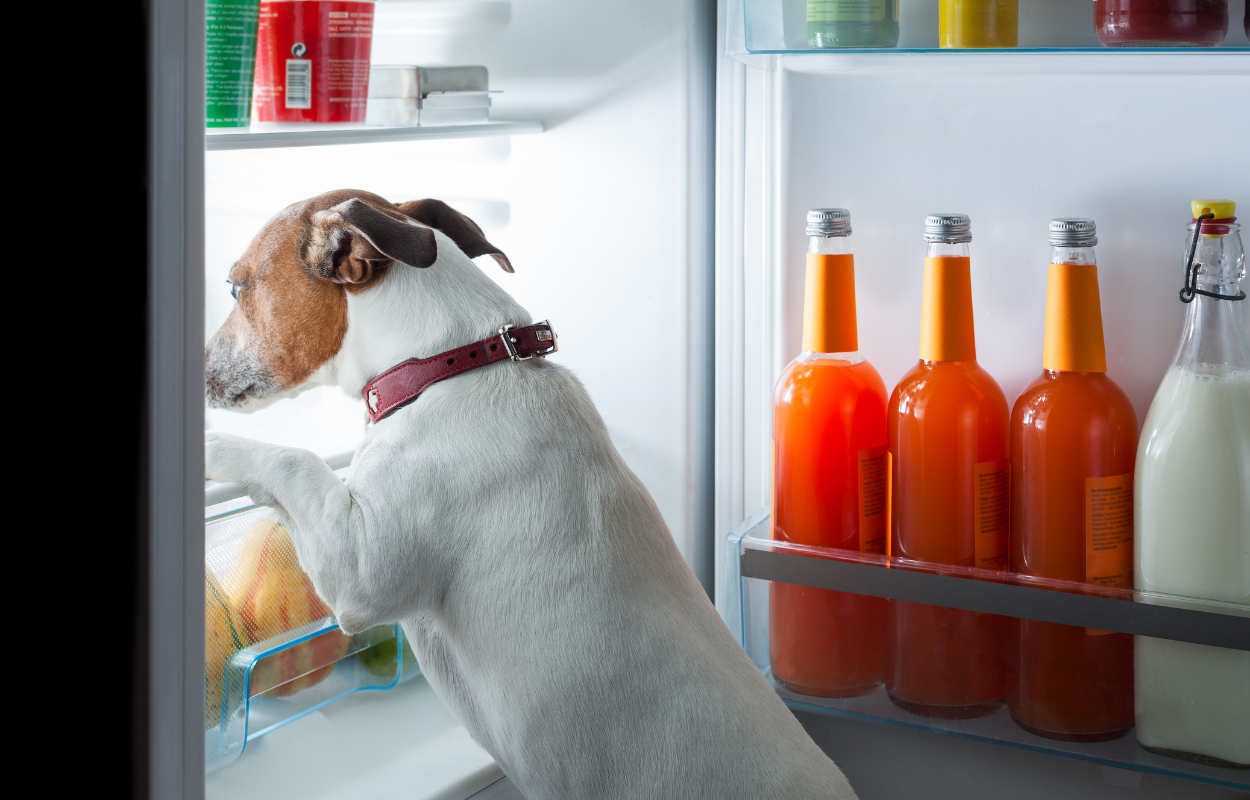
Why are Dogs Always Hungry? Is that a problem?
February 25, 2022Is your dog always hungry? Even after they've finished their meals, they still beg for scraps. You might be wondering if they are really hungry. There are various reasons why your dog is acting like they are starving. This article will help you understand why your furry friend seems to be hungry all of the time and how to determine the right portion size for them.
Habit

We feed our dogs when they ask for food and they get used to it. If you give in to your fur baby's wishes for a snack, you are promoting their behavior and teaching them that the more hungry they act, the greater their chances are of getting a treat.
However, that doesn't mean your dog is hungry. It could just be that they like the taste of those yummy human snacks.
Biological Aspect

Research says that increasing food portion sizes have been identified as a possible contributor to overeating and obesity based on the owner's feeding pattern. They may be eating food simply because it's offered and not because they are hungry, which may be caused by their wild ancestry. This canine instinct might explain why your dog always seems hungry.
Health Issues
Healthy dogs typically have an increased appetite during cold weather, increased activity, pregnancy, and lactation. However, if your dog is hungry all the time and only eats when you present them with a meal or snack, they may have an underlying health condition. These are the common health issues that may cause your dog’s appetite to increase.
- Diabetes
- Hyperthyroidism
- Cushing's Syndrome
- Certain worms or other intestinal parasites
The vet will do a full exam that may include blood, urine, fecal analysis, endoscopy, X-ray, electrocardiogram, or a biopsy to determine the cause and treatment.
My dog is always hungry. Is that a problem?

As part of their personality, some dogs approach each meal as if it were their last, but most of the time, it's learned. Dogs that are rescues may have been food deprived in the past, which causes them to beg for food and devour it within minutes of receiving it.
Pets, even the best-fed, and pampered ones, can learn that begging for treats leads to food, so they will invent hunger in order to get treats.
The correct amount of high-quality food can help your pet stay healthy while overfeeding them can cause them obesity which causes serious health problems.
How can you handle your dog’s appetite?
1. Limit giving treats

Whenever possible, reduce the number of treats given to hungry dogs. If your dog is expecting treats often, it's a behavior that must be unlearned. Instead of offering dog treats as a reward, substitute additional playtime or other positive attention as you gradually decrease the number of treats you give.
2. Adjust portions
The best way to determine the right portion size for your dog's size, age, and activity level is to ask your veterinarian and review their food's nutritional information. Veterinarians typically recommend adjusting your pup's diet based on their ideal weight rather than their current weight. Do not make a sudden increase or decrease in your dog’s meal as it can affect their health significantly.
3. Adapt to your dog’s needs

Nowadays, most dog foods contain fillers that are hard for dogs to digest and require more work on their digestive systems. The right food can provide older dogs with the nutrients they need even if they consume less food.
4. Put nutrients to work
It is essential for a dog's health, growth, and energy that they consume quality nutrients. High heat can damage vital nutrients in highly processed dog foods, and synthetic ingredients are more difficult for your pet to digest. Nutritional food allows them to get more of those things they need, more easily, and without needing to overeat. Supplements also play a vital part in your pet’s health. Fish oil has essential Omega 3 fatty acids that help relieve stiff, aching joints while nourishing the skin and coat of dogs.
Constantly observing your dog is a must so that you will easily notice if they are eating properly and consuming enough nutrients that their bodies need. Feeding your dog the right amount of food is a key to making them healthier, stronger, and away from diseases. Did you know that there are certain fruits that dogs can eat and cannot eat? Check out our article What Fruits Can Dogs Eat?
